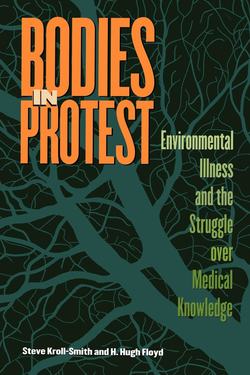Читать книгу Bodies in Protest - Steve Kroll-Smith - Страница 7
На сайте Литреса книга снята с продажи.
Acknowledgments
ОглавлениеA book is never written alone. Like a child, it takes a community to bring it to maturity. A research initiation grant from the University of New Orleans supported the first author through several months of interviewing. Vern Baxter, Valerie Gunter, and Susan Mann, colleagues in the sociology department at the University of New Orleans, read and commented on earlier drafts. Friend and colleague Pam Jenkins remained a patient listener to “tales from the field.” Mike Grimes, a sociologist from Louisiana State University, provided insightful comments on chapters 1 and 2. Martha Ward, research professor of anthropology at the University of New Orleans, read chapters 1 through 3, attending to their symbolic, somatic arguments. Susan Kroll-Smith read each chapter from the standpoint of one versed in psychodynamics and interested in bodies and environments. Steve Couch and Phil Brown, good friends and colleagues, provided emotional and intellectual support throughout.
Several graduate students at the University of New Orleans assisted at various stages of the project. Melanie Diffendall assisted in compiling interview lists and organizing demographic data on respondents. Jennifer Boles worked on referencing and coding interviews. Molly Biehl coded interviews and prepared them for inclusion in the text. Finally, Sandra McMillan assisted in the preparation of a final draft. Jennifer Platt and Amanda Stallings from Samford University also contributed their skills to the project.
Finally, this book would not be possible without the expert help of the environmentally ill themselves. To Diane Hamilton the first author owes a particular thanks for inviting him to meetings at her house in Baton Rouge, Louisiana. It was in the Human Ecology Action League (HEAL) group meetings that the initial, firsthand revelations of the trials, tribulations, and triumphs of living with an environmentally ill body became evident. In several interviews with Diane herself, a woman was revealed who was made stronger by a chronic, disabling illness. To the over 140 people who disclosed themselves in thoughtful narratives about their bodies, personal sufferings, and hopes for the future, we owe our biggest debt. We are privileged to have heard your stories. We hope that you find yourself and your body represented in this book. Thank you.
